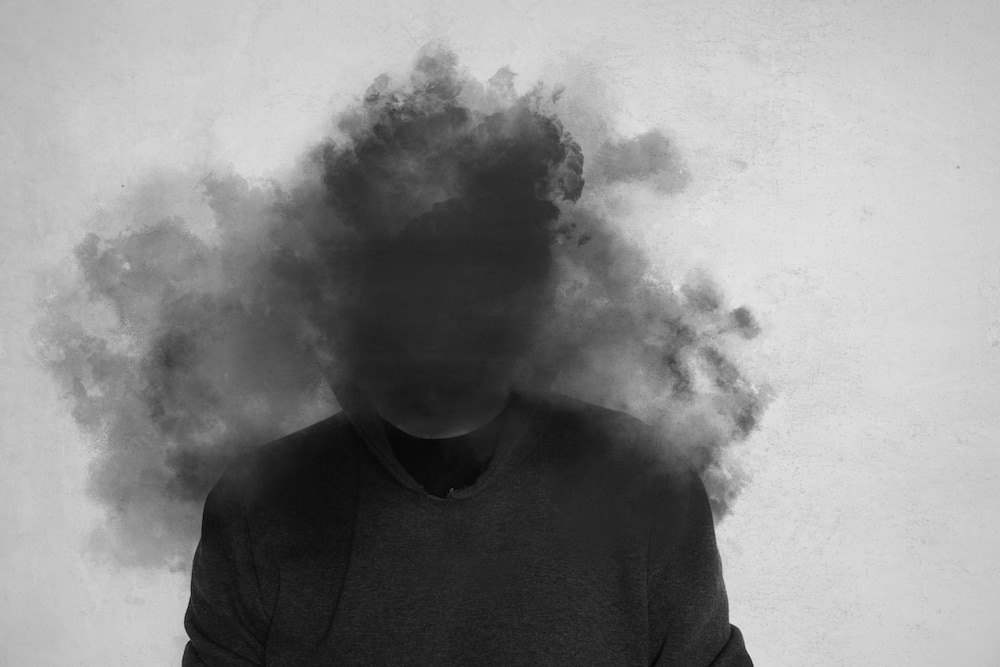Create a free profile to get unlimited access to exclusive videos, sweepstakes, and more!
Thinking too much, for too long, builds up toxins in your brain
Sometimes, watching TV or playing video games doesn’t just feel good, it’s the right thing to do for your brain.

Have you ever thought so hard, for so long, that you felt like your brain was swelling up like Megamind? Maybe you had a hard day at the office, or you had to make some tough decisions and you just can’t bear to think about a single thing for the rest of the day. You didn’t do any heavy lifting; you didn’t cart a sleeper sofa up 13 flights of stairs, or compete in a strong man competition; and yet, you’re exhausted. All you have energy for is watching an unhealthy amount of television while munching on a greasy snack while splayed out on the couch.
If so, you may have wondered what the deal is. How can it be possible that simply thinking can drain you of the ability to do anything else until you’ve rested a good long while? It turns out, science has an answer for you. It might be all in your head, but that doesn’t mean it’s all in your head.
Neuroscientist Antonius Wiehler from the Motivation, Brain and Behavior Lab at the Paris Brain Institute, along with colleagues, just completed a study putting our tired brains under a microscope to figure out once and for all why they get so tired and tiresome after a long day. Their results were published in the journal Current Biology.
“It starts with a fairly basic intuition that focusing for a long time makes us tired. At the same time, we don’t’ have many scientific explanations for this. The brain seems to regulate its activity according to the load people have been doing,” Wiehler told SYFY WIRE.
As their study began, they knew there was some sort of cost benefit trade-off happening inside the brain but weren’t sure what it might be. There were two basic possibilities. Either the brain has some finite resource that it runs out of after thinking too much or there’s some toxic byproduct accumulating in the brain as we think. In essence, the brain is downregulating either because it doesn’t have enough of something or because it has too much of something else. To find out which was correct, researchers put study participants through a series of tasks while measuring their brains.
“We measured a set of transmitters and what we’ve seen is the data seems to support the accumulation hypothesis. The brain is downregulating to avoid further accumulation in the lateral prefrontal cortex,” Wiehler said.
The lateral prefrontal cortex is involved in cognitive control and that’s the only part of the brain in which they observed this fatigue phenomenon after performing a cognitively expensive task for an extended time.
“Neural activity leads to a release of glutamate, the main excitatory neurotransmitter in the brain. The brain is sensing this somehow and wants to avoid too much glutamate in the lateral prefrontal cortex. Therefore, whenever possible, activity in the lateral prefrontal cortex is reduced. When activity is reduced, choices change toward more impulsive, immediate preferences,” Wiehler said.
Two tasks involving interpreting letters on a screen were used to measure the load and response of taxing cognition on the brain. In the first, one letter at a time is displayed in a constant stream of approximately one letter every 1.5 seconds and participants are asked to determine if the letter on the screen is the same or different than the one three letters before. The second task displayed letters in either green or red. If green, participants had to identify if it was upper or lowercase. If red, they had to identify if it was a vowel or a consonant.
These tasks seem simple on the surface but the first requires holding a running stream of information in your mind continuously. If you get distracted even for a moment, you’re toast. The second is made difficult by the color of the letters constantly shifting. Each one requires a multi-part calculation in which the participant has to recognize the color, relate that to the relevant rule, then make their final identification.
When participants did a similar task at a lower difficulty — asking if the letter on the screen is the same as the one directly before or showing participants letters of only one color — researchers did not measure the same fatigue response.
“The clear conclusion is if you have important choices to do, don’t do them in the evening or at least be aware that your choices will be affected by the work you’ve been doing throughout the day,” Wiehler said.
Future research is aimed at figuring out how the brain balances the scales after a particularly rough day. It seems clear that even if you’re mentally fatigued, you tend to be in better spirits the next day, so it’s likely that sleep plays a part in wiping your brain slate clean, but it isn’t yet clear how that is happening.
What is clear is that you’re not making it up when you feel foggy after an emotionally or mentally heavy day. If you feel the need to put your feet up and do something mindless, that might just be your brain’s way of telling you that you’ve overextended yourself.
Sometimes, eating chips and watching TV or playing video games doesn’t just feel good, it’s the right thing to do for your brain health.


























